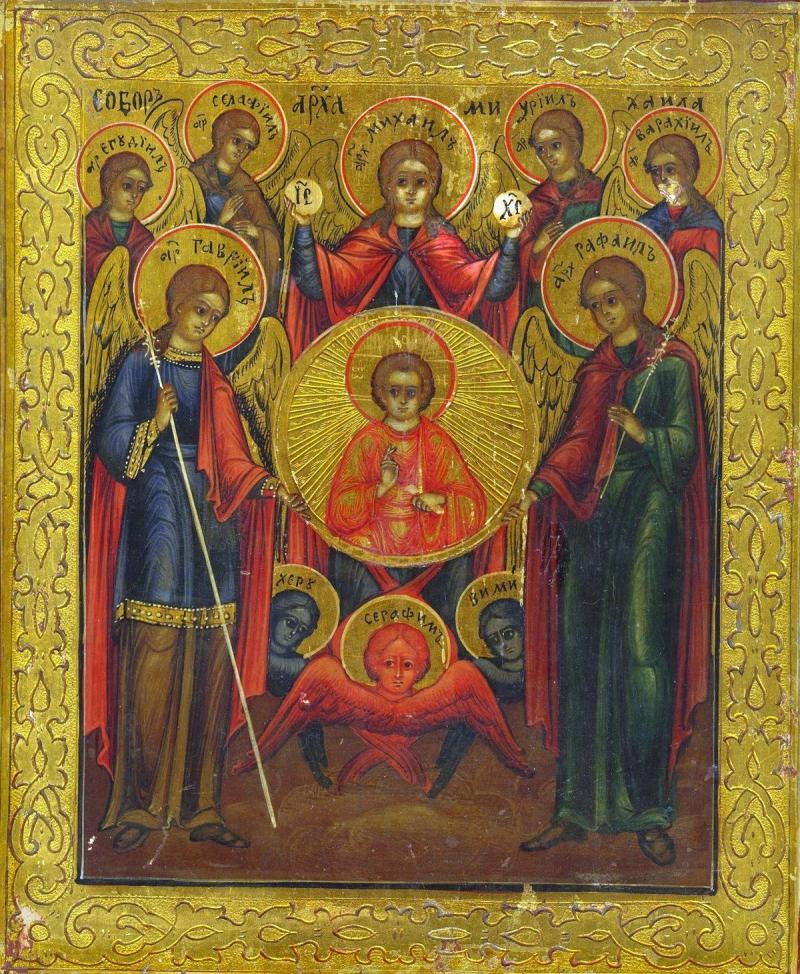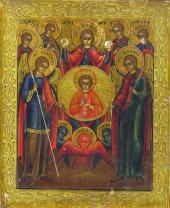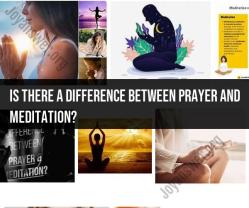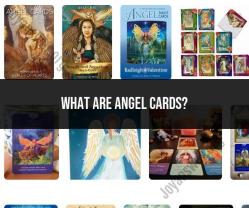Who are the Seven Archangels of Heaven?
The concept of the seven archangels is not universally agreed upon within all religious traditions, and variations exist in different belief systems. However, in some Christian traditions, particularly within the Catholic Church and certain branches of Eastern Orthodoxy, there is a tradition of recognizing seven archangels. These archangels are considered to be high-ranking angels who serve as messengers of God and carry out various tasks. The names of the seven archangels are not consistently agreed upon across all traditions, but the following list is commonly recognized:
Michael: Often depicted as a warrior angel, Michael is associated with protection and is considered the leader of the heavenly armies. His name means "Who is like God?"
Gabriel: Known as the messenger angel, Gabriel is often associated with delivering important messages from God. Gabriel plays a key role in the Annunciation, announcing to Mary that she would conceive the Son of God.
Raphael: The name Raphael means "God heals," and this archangel is often associated with healing and guidance. Raphael is mentioned in the Book of Tobit in the Bible, where he helps Tobias on his journey.
Uriel: Uriel's name means "God is my light," and he is often associated with wisdom and enlightenment. In some traditions, Uriel is considered an archangel, while in others, he is regarded as an angelic helper.
Sariel (Zerachiel): Sariel or Zerachiel is sometimes included in the list of the seven archangels. The name Sariel means "Prince of God," and in some traditions, he is associated with guidance and protection.
Remiel (Jeremiel): Remiel or Jeremiel is another archangel sometimes included in the list. The name Remiel means "Mercy of God." In certain traditions, Remiel is associated with divine visions and is considered an angel of hope.
Barachiel: Barachiel is sometimes listed as one of the seven archangels. The name Barachiel means "Blessings of God," and this angel is often associated with benevolence and encouragement.
It's important to note that the recognition of specific archangels and their roles can vary among different religious denominations and traditions. The concept of seven archangels is more prevalent in certain branches of Christianity, and other traditions may have different classifications or may not recognize a specific number of archangels.
Who are the Seven Archangels of Heaven in religious beliefs?
The Seven Archangels of Heaven are a group of celestial beings who are believed to be the highest-ranking angels in various religious traditions. They are often depicted as intermediaries between God and humanity, and they are often invoked for protection, guidance, and healing.
The Seven Archangels are:
- Michael: The leader of the archangels and the protector of humanity.
- Gabriel: The messenger of God and the angel of annunciation.
- Raphael: The healer of God and the angel of mercy.
- Uriel: The light of God and the angel of wisdom.
- Chamuel (Camael): The love of God and the angel of peace.
- Jophiel: The beauty of God and the angel of joy.
- Zadkiel: The righteousness of God and the angel of forgiveness.
What roles or attributes are associated with each of the Seven Archangels?
Here is a brief overview of the roles and attributes associated with each of the Seven Archangels:
- Michael: Michael is often depicted as a warrior angel who leads the forces of good against the forces of evil. He is also associated with protection, courage, and strength.
- Gabriel: Gabriel is often depicted as a messenger angel who delivers messages from God to humanity. He is also associated with communication, new beginnings, and hope.
- Raphael: Raphael is often depicted as a healer angel who helps to heal the sick and injured. He is also associated with compassion, protection, and guidance.
- Uriel: Uriel is often depicted as an angel of wisdom and light. He is also associated with truth, knowledge, and understanding.
- Chamuel: Chamuel is often depicted as an angel of love and peace. He is also associated with relationships, harmony, and reconciliation.
- Jophiel: Jophiel is often depicted as an angel of beauty and joy. She is also associated with creativity, inspiration, and self-expression.
- Zadkiel: Zadkiel is often depicted as an angel of righteousness and forgiveness. He is also associated with mercy, justice, and transformation.
Are there commonalities or differences in the depiction of Archangels across various religious traditions?
There are both commonalities and differences in the depiction of archangels across various religious traditions.
One commonality is that archangels are often depicted as highly powerful and benevolent beings. They are often seen as intermediaries between God and humanity, and they are often invoked for protection, guidance, and healing.
Another commonality is that archangels are often associated with specific virtues or qualities. For example, Michael is often associated with courage and strength, Gabriel is often associated with communication and new beginnings, and Raphael is often associated with healing and compassion.
However, there are also some differences in the depiction of archangels across various religious traditions. For example, the names and roles of the Seven Archangels differ slightly between Judaism, Christianity, and Islam.
In addition, some religious traditions, such as Protestantism, do not venerate archangels at all.
Overall, archangels are fascinating and complex beings that play an important role in many religious traditions. While there are some differences in the way that they are depicted, they are generally seen as powerful and benevolent beings that are intermediaries between God and humanity.









